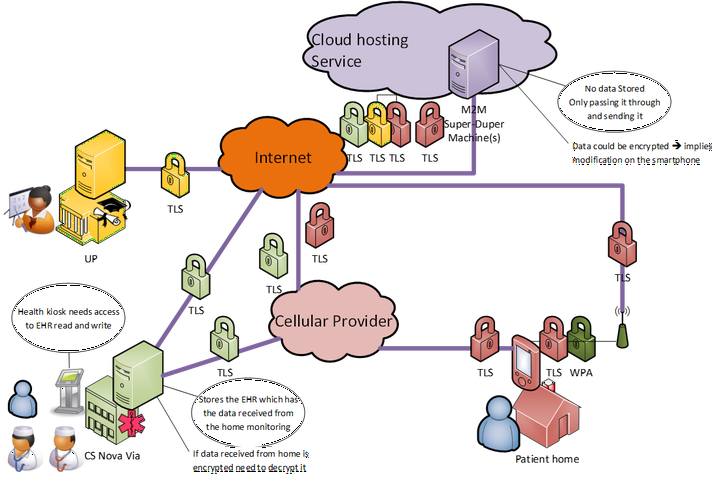Future Health

| Info | |
|---|---|
| Type | Norte/FEDER |
| Reference: | NORTE-07-0124-FEDER-000068 |
| Start Date: | 2013-01-01 |
| End Date: | |
| Partners: | FEUP, FMUP, FCUP |
| My responsibility | Researcher |
Main Objective
The cities of today host a number of institutions that ensure the adequate healthcare of their inhabitants, most notably hospitals and clinics. However, in most cases, health care institutions do not share information effectively neither amongst themselves nor with the end user. Would a cardiologist not be likely to treat a patient more successfully if he knew how many meters he walks per day? What about his physical therapist? Motivated by these questions, the Future Health project, which is part of the I-CITY Integrated Research Program and “ICT for Future Cities” Research Line, will explore how effective communication with central electronic health records, combined with the sensing and interactive capabilities of current smartphones, can be exploited to improve the health monitoring and health care provision of citizens in future cities. The project is based on three main axes: the continuous monitoring of individuals using smartphones, the enhancement of current health services by accessing richer patient information, and the design and implementation of future electronic health records and its required infrastructure for information sharing.
To meet these key objectives the project relies on a highly multi-disciplinary team, who gathers extensive expertise in fields as diverse as biomedical signal processing (M. Coimbra), wireless communications (A. Aguiar), secure networking (J. Barros), interactive systems (V. Orvalho), electronic health records (L. Antunes), hospital information systems (R. Correia) and software engineering (R. Prior). It also requires intense interaction with Hospitals (Real Hospital Português – Dra. Sandra Mattos, Centro Hospitalar Alto Ave – Dra. Filipa Almeida) and cooperating complementary academic institutions both regional (FMUP, IPP, FPCEUP) and international (Queen Mary University of London, UK – Mark Plumbley; University College London, UK – Peter Bentley). Finally, the project already enjoys the support of companies such as Critical Software, which will provide the adequate identification of competitive solutions and services thus potentianting the transfer of enabling technologies from both the Future Health project and the regional infrastructures previously funded by this initiative, in particular LABIOMEP (Laboratório de Biomecânica da Universidade do Porto).